This September, the finalist teams traveled to Washington, D.C., to present their tools before a live audience and the independent judging panel. Demo Day marked a culminating moment in the Future Finder Challenge as finalists competed for a share of $750,000.
After the U.S. Department of Education announced the finalists in March, the five teams spent six months refining and testing their tools in a virtual accelerator. At Demo Day, finalists showed their hard work for the judging panel and gave audience members a unique chance to preview next-generation digital career navigation tools for adult learners.
To kick things off and highlight why the challenge and initiatives like it are so important, audience members heard from national education and edtech leaders, including Deputy Secretary of Education Cindy Marten; Assistant Secretary for the Office of Career, Technical, and Adult Education (OCTAE) Dr. Amy Loyd; and StartEd CEO Ash Kaluarachchi. The opening speakers addressed the barriers that adult learners face in accessing careers, how innovative tools can help learners attain equitable outcomes while building a robust national workforce, and the risks that edtech founders take as they work toward achieving these goals.
Deputy Secretary Marten and Assistant Secretary Loyd highlight the power of innovation
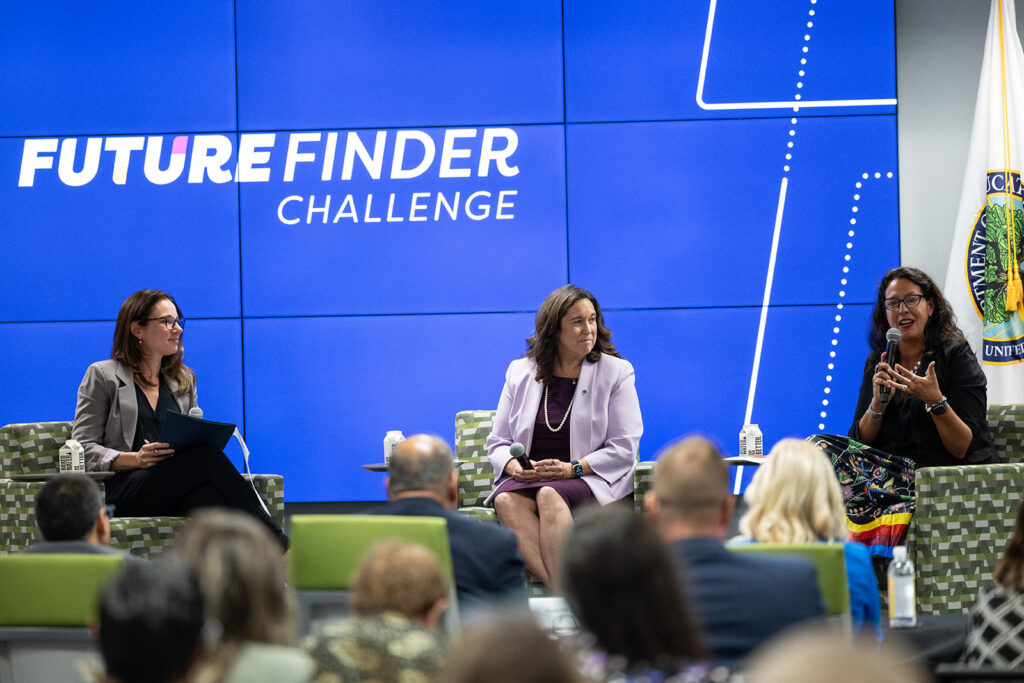
Deputy Secretary Marten and Assistant Secretary Loyd took the stage for a fireside chat, during which both advocated for adult learners’ access to quality careers and emphasized the Department’s vision for a more equitable and inclusive future.
The Deputy Secretary, in particular, highlighted the power of collaboration in reimagining education and career readiness. She stressed the need to facilitate bold conversations between previously isolated stakeholders and marshall funding in support of the new ideas they develop; this includes funding made available through national education initiatives such as Raise the Bar: Lead the World. These initiatives require a collective effort, but it’s one worth making. A robust American workforce can support economic competitiveness around the world while enabling equitable access to critical jobs at home.
“When we invest in people, we’re investing in America,” said Deputy Secretary Marten. “Let’s break down silos and use our federal granting abilities to bring people together and make something happen that would’ve never happened on our own — because it is a tsunami of jobs that’s coming.”
The Assistant Secretary reminded the audience that the opportunity to support adult learners throughout their career navigation journeys — which can sometimes feel abstract — hits close to home. At the same time, she made clear that supporting those closest to us can also generate a much broader impact.
“Adult learners are our family members, they’re our neighbors, they’re our colleagues,” said Assistant Secretary Loyd. “They are people who we see everyday, but we don’t see the barriers they’ve experienced in life. They have the power to supercharge our economy and drive our mission to the future. They are the most brilliant and incredible resource in our country, and I want to sound the alarm. We need to make sure that we’re supporting every single adult in our country in accessing tools such as these to fulfill their endless potential.”
Ash Kaluarachchi calls for continued edtech investment
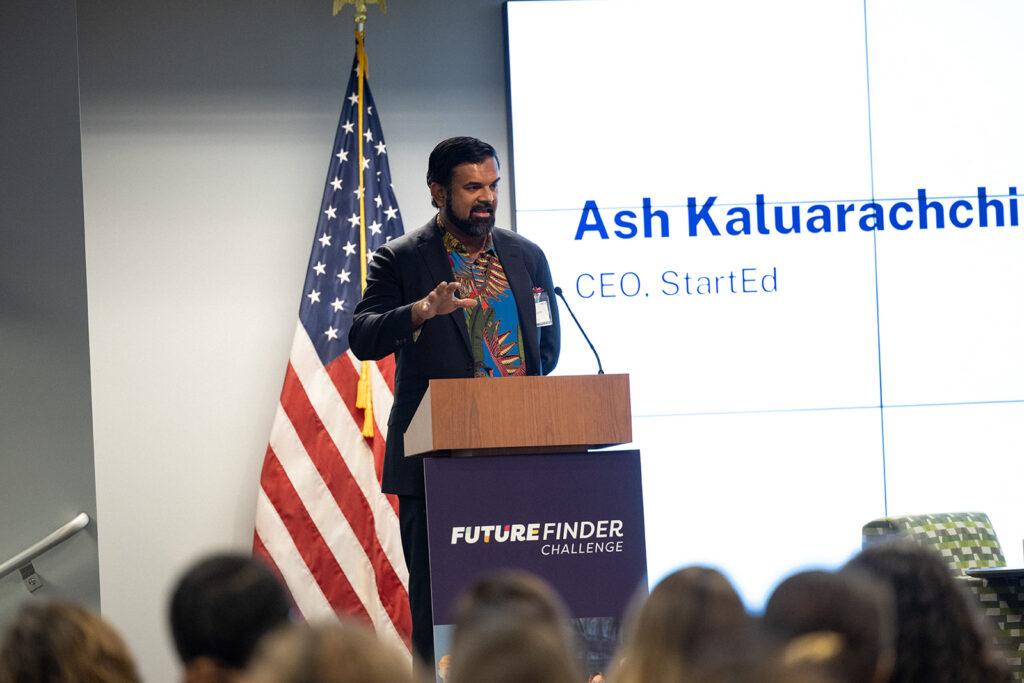
StartEd CEO Ash Kaluarachchi called for continued investment in edtech career navigation tools. He emphasized that the role of innovators, including the challenge finalists, is to take risks on other people’s behalf. They risk their finances and reputations to solve problems for other people — and they do it because they care deeply about the barriers their users face and the outcomes they might achieve with additional support. It’s crucial that these innovators receive support, too, in the form of policy support from legislators or financial support from investors.
“I advise entrepreneurs and innovators in this room to continue to focus on helping the users and customers they love,” said Ash Kaluarachchi. “I advise those of you who are in positions of power to create policies that help. And finally, I advise you to continue to invest your time and effort in things that change lives.”
OCTAE leaders speak to the importance of innovation in support of adult learners
The audience also heard from OCTAE leadership, who emphasized the pressing need for continued innovation in support of adult learners. OCTAE Deputy Director Grace Air outlined the scope and scale of the problem, calling attention to the more than 43 million adult learners who could benefit from adult education and career navigation support to gain equitable access to quality careers. OCTAE Director LaToya Newson later called for continued support for adult education from innovators and investors alike, and celebrated the finalist teams for leading the way toward a new generation of digital career navigation tools.
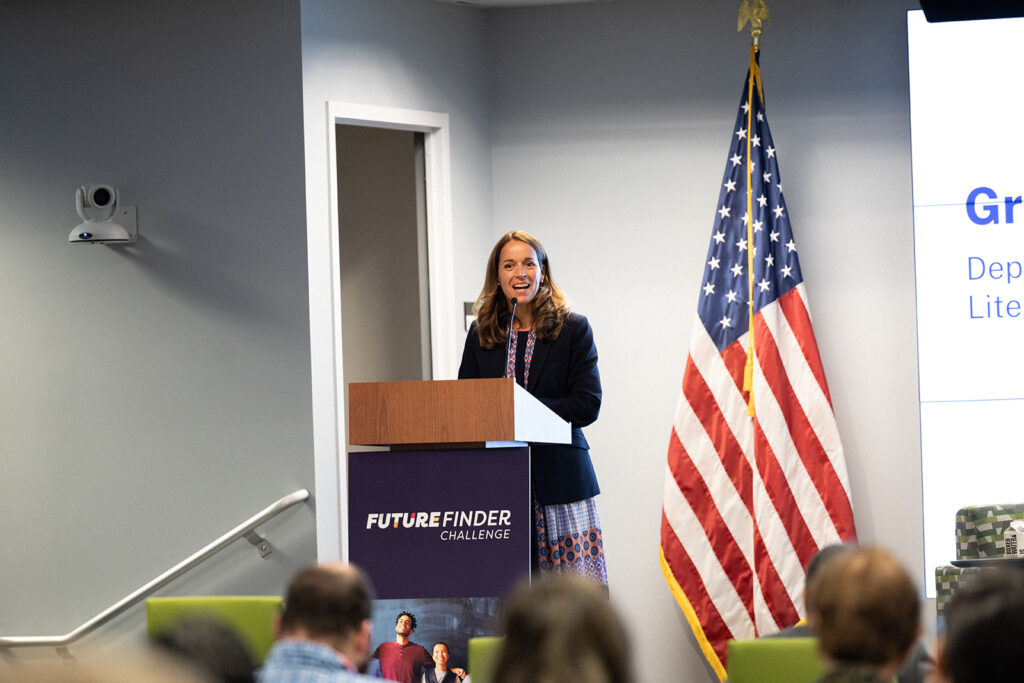
“At a time when technology can transform the possibilities of career navigation, it’s our collective responsibility to make sure that innovation happens in support of adult learners,” said Grace Air. “That’s why the Future Finder Challenge is so important.”
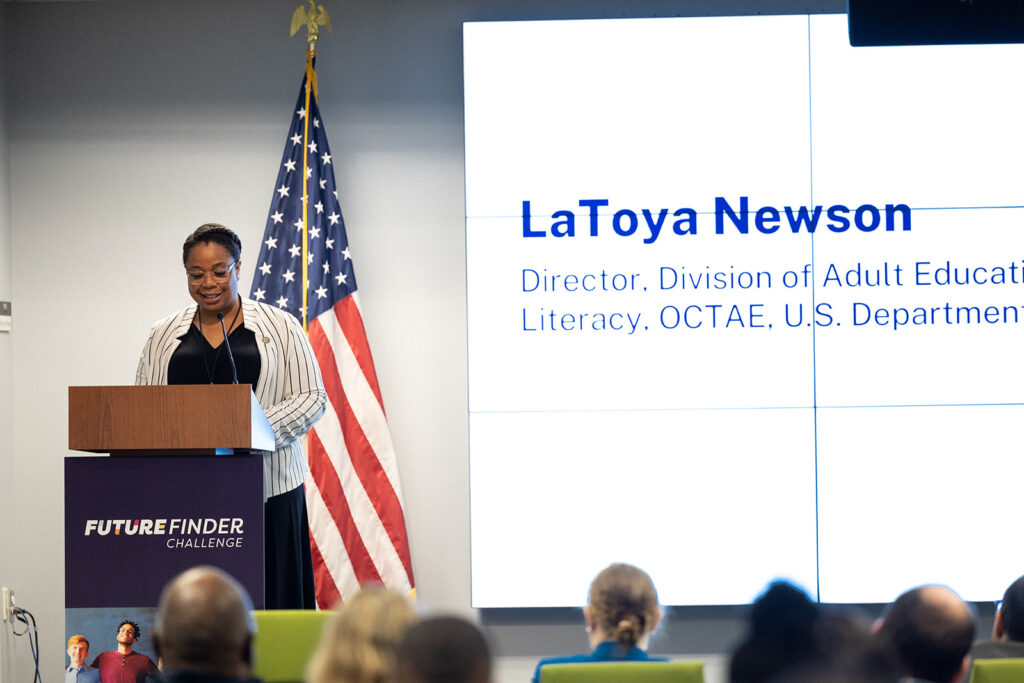
“There is no better time than now for members of the innovation community to invest their energy, their talent, and their resources into a new generation of digital tools that can ‘Raise the Bar’ for adult learners across their education, training, and career journeys,” said LaToya Newson.
Finalists share their innovative tools and the accelerator’s impact on their development
Following opening remarks, each finalist team presented its digital tool to the audience and independent judging panel, sharing the tool’s origins, its development through the accelerator, and plans for the future. They also answered questions about the tools from the judging panel, who used the opportunity to inform their recommendations for challenge winners.
BestFit (St. Louis, Missouri)
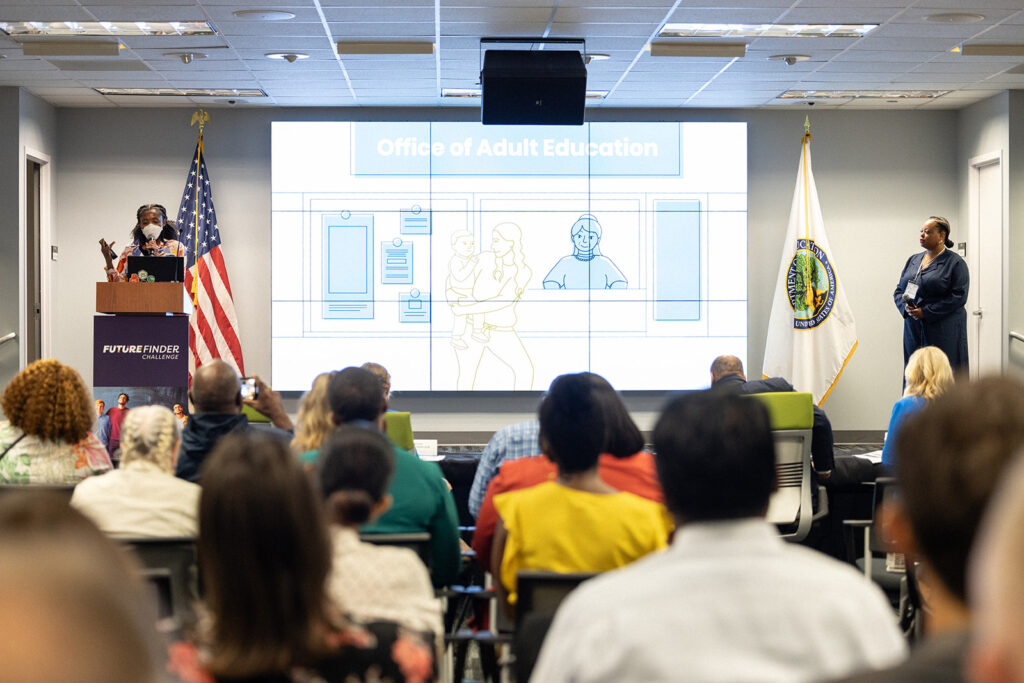
Gladeo (Los Angeles, California)
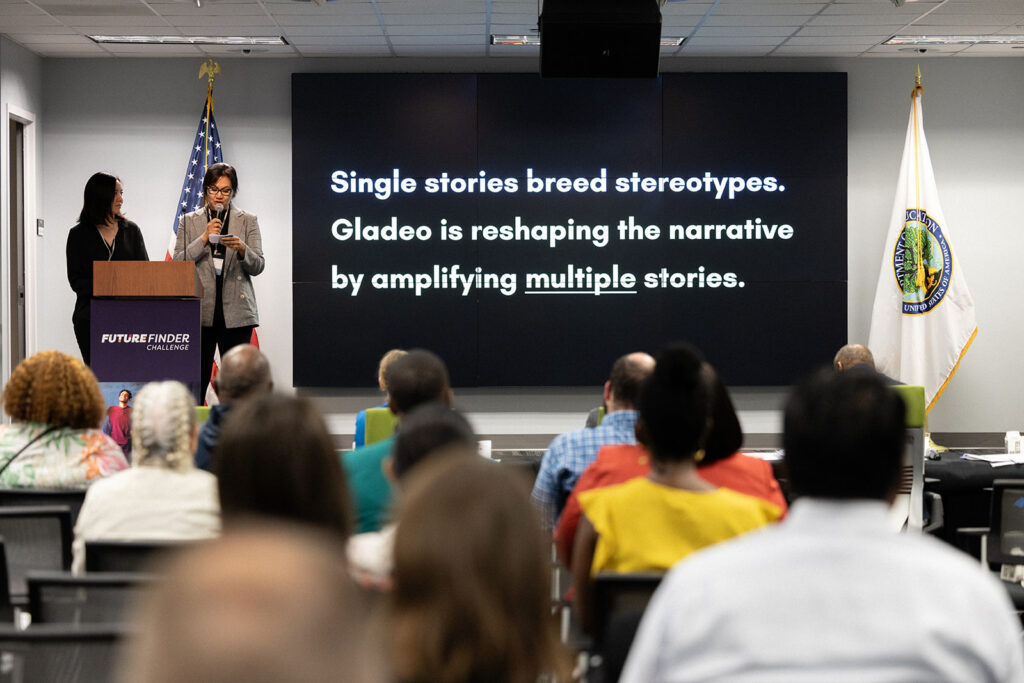
Territorium (San Antonio, Texas)
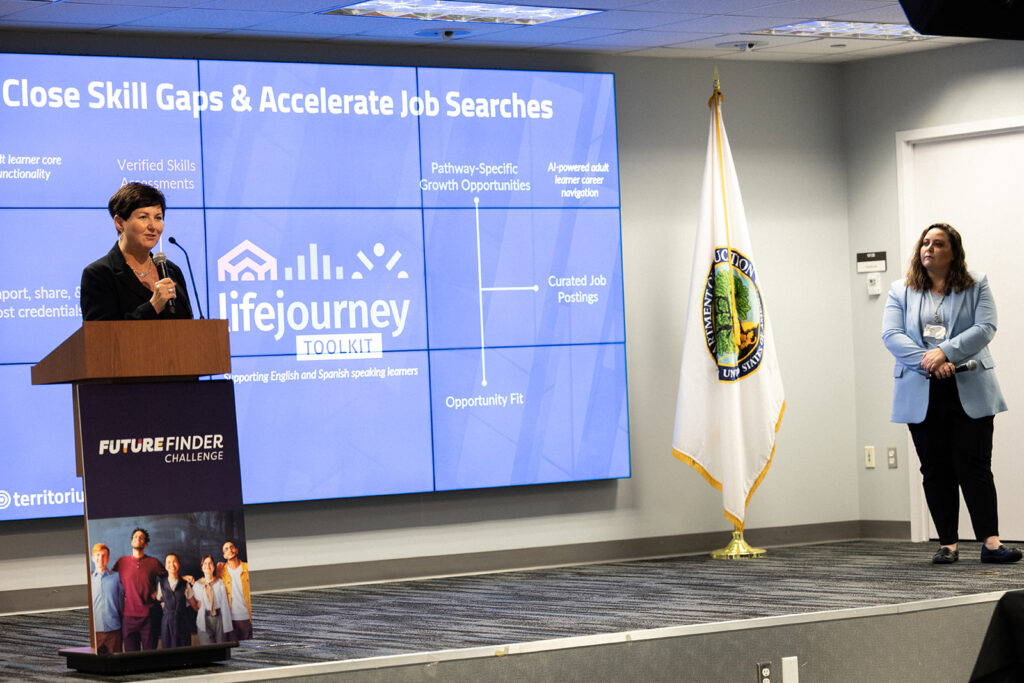
Wingspans (Providence, Rhode Island)
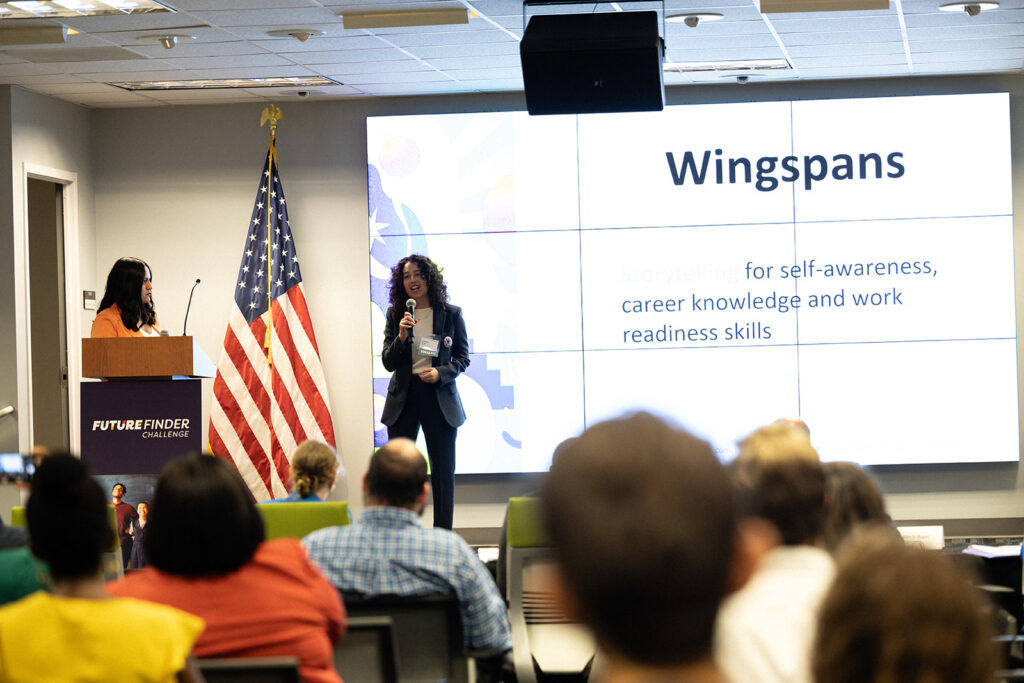
Workbay (Franklin, Tennessee)
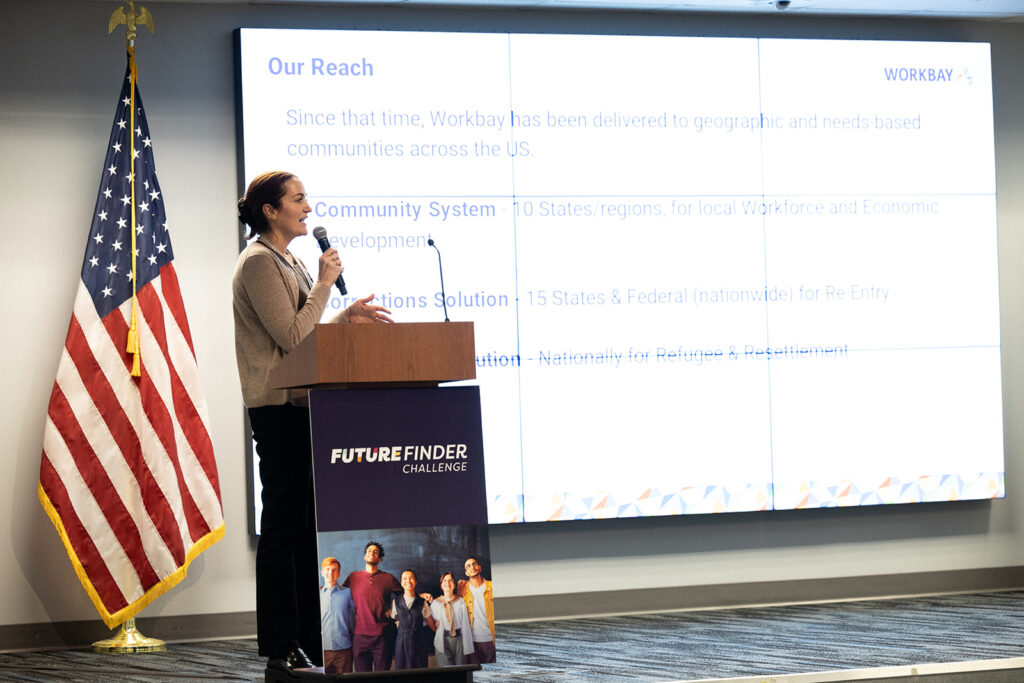
A panel of expert judges
After each finalist team delivered its presentation, the judges asked targeted questions informed by the Stage 2 selection criteria. Their questions touched on analytics and insight, impact, integration, learner centricity, scalability, and sustainability.
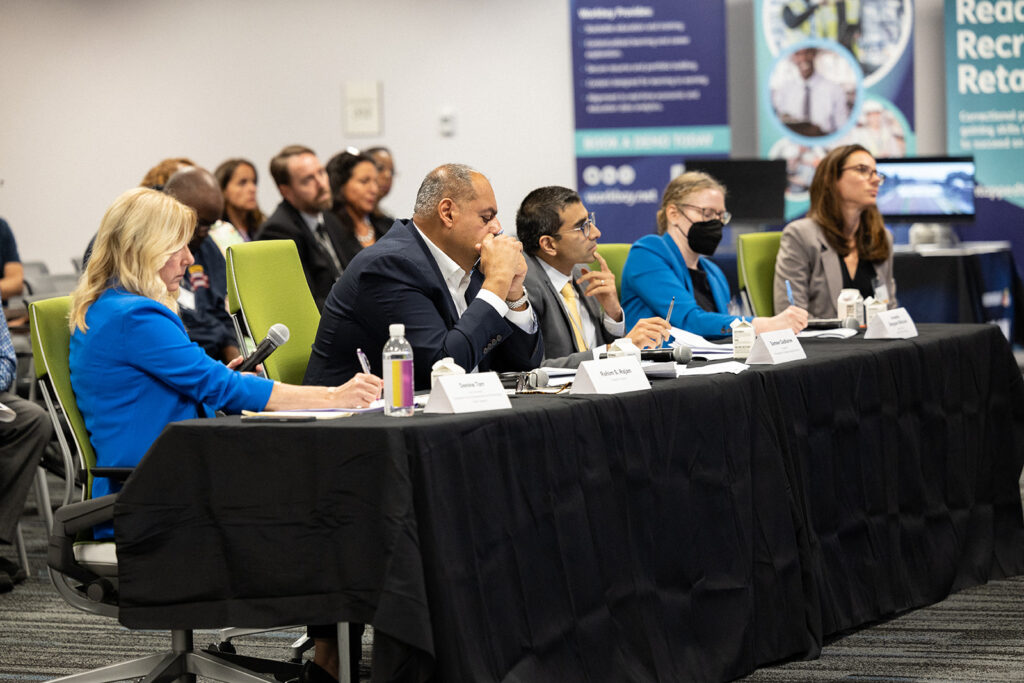
Looking ahead
Following Demo Day, the independent judging panel is scoring submissions against the Stage 2 selection criteria. One grand-prize winner will receive $500,000 and up to two runners-up will receive a share of $250,000. The challenge team will then support the winners as they deploy their digital career navigation tools across the adult education ecosystem.
Photos by April Renae.
